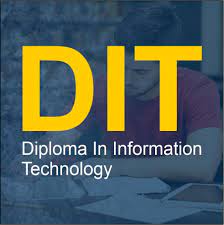
DIT course in Peshawar
In the rapidly evolving landscape of technology, staying ahead of the curve is essential for both personal and professional growth. One way to achieve this is through specialized courses that equip individuals with the skills and knowledge needed to navigate the digital realm. Among these courses, the Diploma in Information Technology (DIT) stands out as a beacon of opportunity, offering a gateway to a world of possibilities.
Course Benefits:
The DIT course is designed to provide participants with a holistic understanding of information technology, covering a broad spectrum of topics. From programming languages to database management, cybersecurity, and beyond, this course is a comprehensive dive into the multifaceted world of IT. One of the primary benefits is the acquisition of practical skills that are directly applicable in real-world scenarios, making DIT graduates highly sought after in the job market.
Learning Outcomes:
Upon completion of the DIT course, participants can expect to emerge with a robust skill set that includes proficiency in programming, system analysis, network administration, and more. The program is structured to foster critical thinking, problem-solving abilities, and effective communication skills – all vital in the dynamic field of information technology. Graduates will be well-equipped to take on diverse roles, from software developers and IT consultants to system administrators and cybersecurity specialists.
Study Units:
The DIT course is crafted to cover a range of study units, ensuring a well-rounded education in information technology. Some key units include:
Programming Fundamentals: Learn the essentials of coding and programming languages, providing a strong foundation for software development.
Database Management: Explore the intricacies of organizing and managing data efficiently, a crucial skill for any IT professional.
Network Administration: Understand the principles of network design, implementation, and maintenance, preparing students for roles in system administration.
Cybersecurity: Delve into the world of digital threats and defenses, gaining the knowledge to protect systems and data from potential risks.
Who Is This Course For?
The DIT course is ideal for individuals who are passionate about technology and aspire to build a career in the dynamic field of information technology. Whether you are a recent high school graduate, a career switcher, or someone looking to upskill, this course caters to a diverse audience. The flexible nature of the program allows participants to tailor their learning experience according to their interests and career goals.
Future Progression:
The journey doesn’t end with the completion of the DIT course; instead, it serves as a springboard for continuous growth and development. Graduates can explore various career paths, such as software development, IT consulting, project management, or even entrepreneurship. Furthermore, the DIT course lays the groundwork for further academic pursuits, providing a solid foundation for those considering advanced degrees in computer science or related fields.
In conclusion, the Diploma in Information Technology (DIT) is not just a course; it’s a transformative experience that opens doors to a world of opportunities in the ever-expanding realm of technology. Whether you’re embarking on a new career or enhancing your existing skills, the DIT course is your passport to a future where innovation and success go hand in hand.